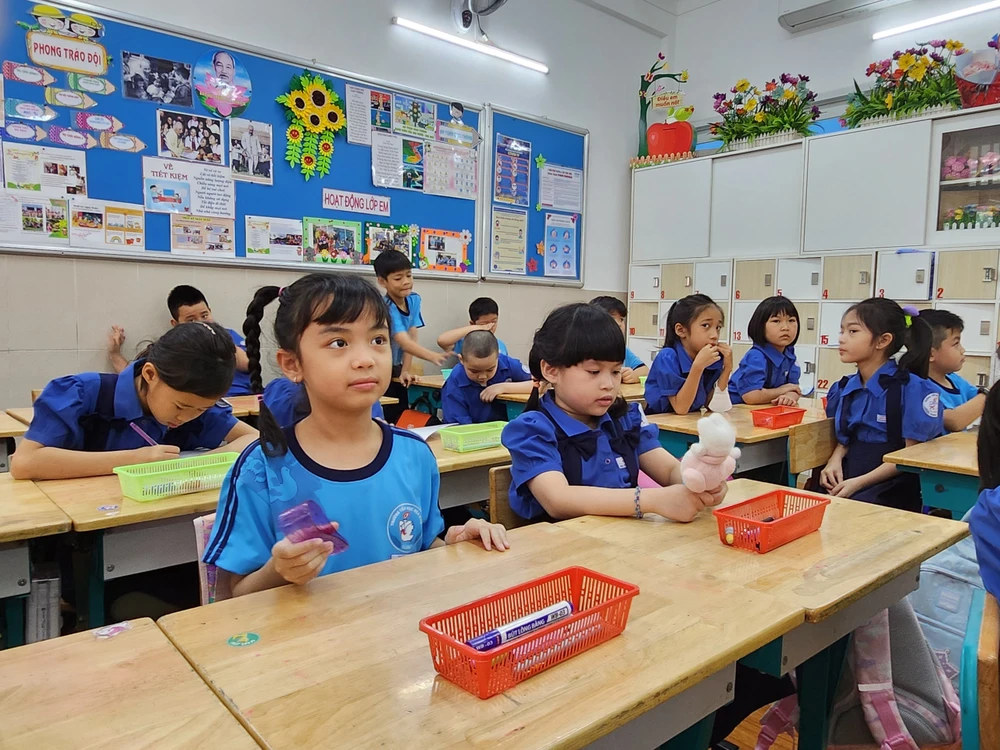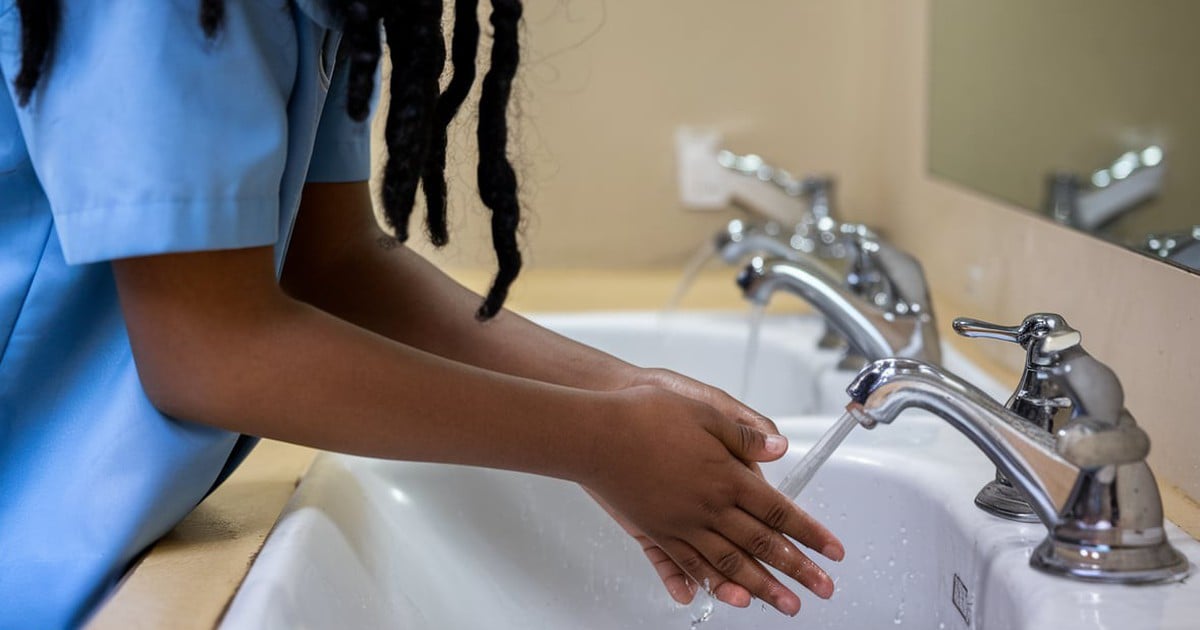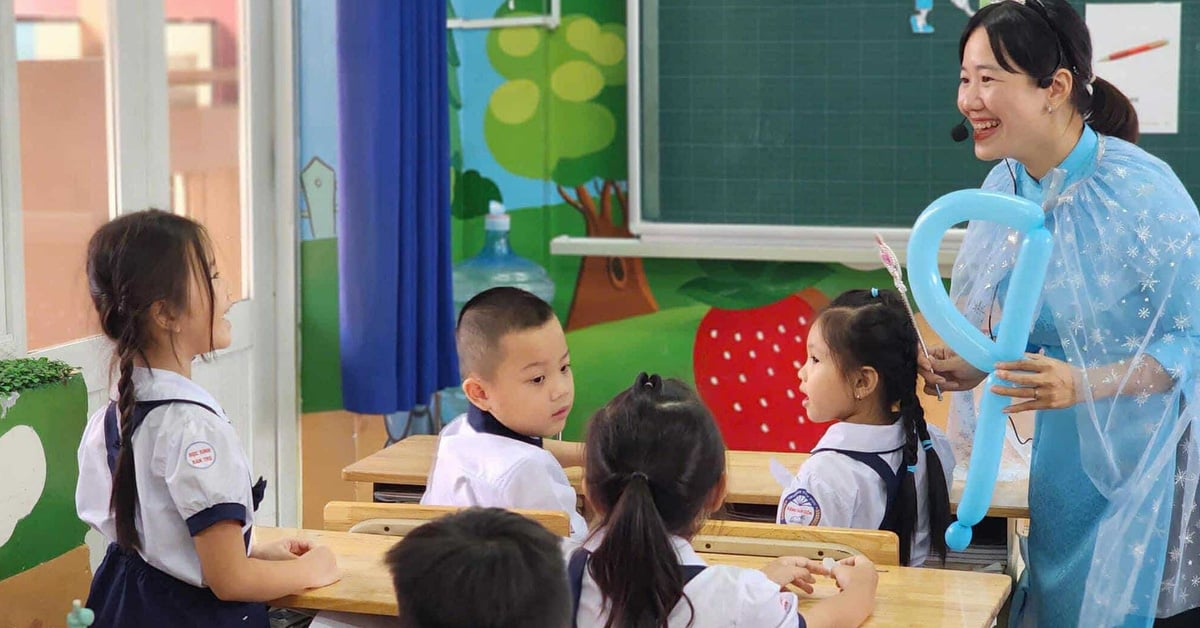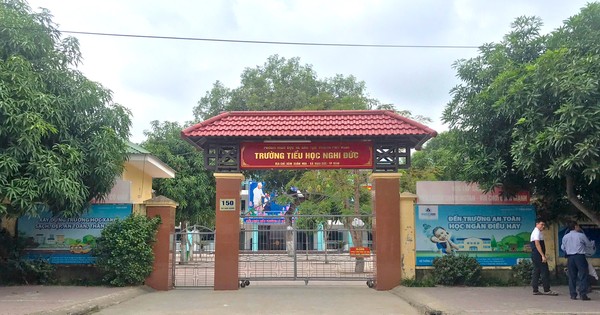On August 31, the Department of Education and Training of Ho Chi Minh City provided guidance on some early-year activities for primary schools. In particular, the earliest school start time in the morning is 7:30 a.m. and the earliest school start time in the afternoon is 1:30 p.m.

Accordingly, 21 districts and Thu Duc City reviewed the list of students who had not registered for class, had plans to arrange class sizes and assign teachers, ensuring that no student in the area did not have a place to study, and that all students on the list had attended class.
In addition, schools convey information and activities of the school year to parents through many different solutions, develop measures to guide students to participate in learning, and guide parents or relatives to support students.
For activities organized at the beginning of the year, schools need to introduce the school's traditions, vision, and mission in a way that is appropriate for the age of primary school students as well as the school's organizational structure, management staff, teachers, and staff.
Along with that, schools introduce regulations on testing, evaluating learning and training results, school rules and other regulations; introduce school facilities, learning equipment, locations of classrooms, functional rooms, libraries, computer rooms, traditional rooms, playgrounds, practice grounds, gymnasiums, boarding areas, cafeterias, toilets, uniforms, learning and training supplies for students when coming to school.
Students are organized to learn about learning activities to help them become familiar with the purposes, requirements, learning programs and learning methods, practice at school and in class, get acquainted and gradually approach the content, methods and forms of teaching in a positive, proactive and confident manner.
In particular, homeroom teachers introduce textbooks and reference materials to arouse students' love and interest in the subject, digital versions and the school's digital science library.
In the context of infectious diseases at risk of spreading, schools need to continue to maintain activities to prevent and control infectious diseases, ensure school safety, food hygiene and safety, and maintain regular hand washing with clean water and soap for all members of the school.
Accordingly, the school arranges an appropriate number of hand washing sinks, convenient hand washing places, and provides and maintains adequate soap and clean water.
Boarding schools must implement food hygiene, ensure food safety, prevent food poisoning and publicize the quality of meals.

For students who have not completed the primary school program, the school proactively arranges a re-examination time for students who have not completed the program in a similar format to the periodic test at the end of the second semester, without causing stress or pressure for students.
Homeroom teachers develop re-examination plans and organize review sessions for students; grade groups coordinate with homeroom teachers to develop test questions for each subject; and carry out procedures in accordance with regulations.
For students who have been guided and assisted but are still not qualified to complete the class program, depending on the level of incompleteness in subjects, educational activities, the level of formation and development of certain qualities and abilities, teachers will make a list and report to the principal for evaluation and consideration, deciding whether or not to promote to the next grade.
After conducting the re-inspection, the school will make a list to report to the Department of Education and Training, and at the same time update the data on the information portal and the digital Student Report Card data.
The first semester curriculum will start from September 9, 2024, and the second semester from January 13, 2025. Units will proactively arrange the curriculum, teaching plans and timetables to ensure that the curriculum follows the school's school year schedule.
Regarding the regulations on students' study time, the principal proactively arranges the school's plan, builds a flexible and suitable timetable, and conducts at least 7 periods per day, with 4 periods in the morning and 3 periods in the afternoon encouraged.
In addition to the 7 periods in the general education program each day, the school can develop a school program and plan to organize additional activities depending on the needs and abilities of the students and in agreement with the students' parents.
After school each day, the school may plan after-school clubs for students until they are picked up. These plans must be approved by the appropriate authority before being implemented.
The school must ensure the following daily time frame: The first period in the morning starts from 7:30 a.m. onwards and no later than 7:45 a.m.; The first period in the afternoon starts no earlier than 1:30 p.m.
ATTENTION
Source: https://www.sggp.org.vn/tphcm-hoc-sinh-tieu-hoc-vao-hoc-som-nhat-luc-7-gio-30-post756587.html









































![[Photo] Prime Minister Pham Minh Chinh chairs Government Conference with localities on economic growth](https://vstatic.vietnam.vn/vietnam/resource/IMAGE/2025/2/21/f34583484f2643a2a2b72168a0d64baa)























































Comment (0)